Archive
2006
The politics of housework
Female production and modern housework is a central part of modernisation and the welfare state. Gro Hagemann is researching how historical and political changes have formed the role of the housewife through the 20th century.
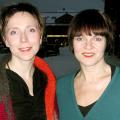
Silence protects
The authorities want to get the victims of trafficking to talk. However, silence is a protection for many of the women, in their attempt to start a new life. Give them information and legal aid so they can make their own, qualified decisions is the advice from a group of Norwegian and Serbian researchers who have interviewed the victims of trafficking in Serbia.
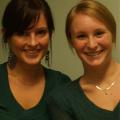
When anorexia is the solution
When everything feels unstable, having control over your own body and your food intake becomes a way of taking charge. If you don’t eat then that’s at least one thing you’re in control over. Besides, you become slim; and slim means happy. Karen Klovning and Siri Hoftun have interviewed eight girls who have had anorexia.

Prize for thesis on self-injury
To the support services self-injuring women often seem inscrutable and helpless. The women’s own insights into and comprehension of self-harm are not asked for. In Norway Anita Moe has interviewed a group of women and their experiences of self-injury. For this work she won the prize for outstanding contribution to women’s studies and gender research 2005 at the University of Oslo, Norway.
Tragedy & Honour
Kristin Skjørten has investigated how two Norwegian newspapers cover murder and other violence against women, in cases where the perpetrator has a close relationship to the woman. Some cases are widely reported and trigger debates on topics such as honour. Other cases received limited coverage under the headline, family tragedy.

Motherhood challenged
In Norway sperm donation is legal, but egg donation is not – despite today’s technology and medical techniques that make it possible. What is it about motherhood that makes the donation of eggs a viable solution that is not used? Kristin Spilker’s doctoral project explores this and the issues that arise from it.
2005

USA-Norway, Return Trip
Anne Sæbø left Norway for the USA ten years ago. Now she is back as a guest researcher. Here she reflects over the similarities and differences, and how American ways gradually affect Norwegian traditions; Christmas decorations, for example.

Home baptism and Christmas trees in Manndalen
In Manndalen, a village in the county of Troms in the north of Norway, Laestadianism is a strong influence in the community. How does this affect those in the community who do not belong to this religious movement? Why is home baptism still practised , while Christmas trees – which were previously rejected – are now on their way in to every living room? Lisa Vangen has conducted fieldwork and interviews in the village.

The black, snow white adventure
Oil and gas has become the mantra for the future in Norway, not only connected to the Snøhvit (literally, Snow White) project at Hammerfest, in the far north of Norway, but in the whole of the county of Finnmark. Anthropologist Britt Kramvig fears that as a consequence the other untapped resources of the region, like its many educated women, are being forgotten.

Half of the power in the Sámi Parliament
In Norway, the local council, the county parliament and the national parliament are all a long way from achieving a gender balance among their elected representatives. But now, it has been achieved in the Sámi parliament. In the autumn elections of 2005 the ratio of women in the Sámi parliament increased from 18 to 51 per cent. And for the first time a woman, Aili Keskitalo, has been chosen as the Sámi Parliament president. What happened?

Masculine Sport: A Homo-free zone?
Anti-gay remarks come up in elite sports at regular intervals. Kjetil Rekdal, the manager of elite division football team Vålerenga, has said, among other things: “I am homophobic”. Why are male dominated sports environments often homophobic? Heidi Eng and Ulla-Britt Lilleaas have, in their respective research projects, attempted to find some answers.
Quotas and justice
Political committees in Norwegian local authorities should have a representation of at least 40 per cent of each sex. In practice, however, it does not work like this. The law on quotas often has to yield to arguments that it constitutes a threat to local democracy. Ingrid Guldvik has written her doctoral thesis on quotas and gender justice.
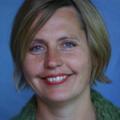
Norway's Parliament – Not equal
We are approaching a general election in Norway. How equal will the gender balance in the new Storting (the Norwegian national parliament) be? Today, with women occupying 37 per cent of seats in the Storting, Norway has a poorer gender balance in its parliament than both Sweden and Rwanda!
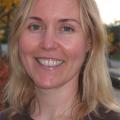
Where computing is cool for girls
In Norway few girls choose an education in computing. In Malaysia, on the other hand, an education in computing is popular with girls. There, computing is considered a suitable career for women. Sociologist Vivian Anette Lagesen has investigated the differences between the two countries in her recently completed doctoral thesis in Interdisciplinary Culture Studies.
Challenges for Nordic research into violence
The Nordic countries are in a unique position in the fight against mens’ violence against women. However, challenges remain that the Nordic countries have not addressed, says Liz Kelly.
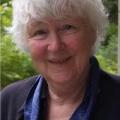
Upstairs, Downstairs
– The first women’s movement in Norway was interested primarily in the rights of middle class women - with the right to an upper secondary education and to study at university. However, many of these middle class women were assisted by their servants, says professor emeritus Sølvi Sogner. She is now writing a servants’ history.

On the Daddytrack
The Daddytrack is an expression masculinities researcher Øystein Gullvåg Holter has borrowed from the Americans. In the USA, yes to daddytrack means no to career. Holter wants the Nordic countries and Europe to develop an alternative daddytrack that does not force men into choosing between work and family.

Norway – Turkey: A Score Draw
In Turkey women working in news and in newspaper editing are few and far between. However, how much better is the situation in Norway? Huriye Toker has compared the gender balance in the two Turkish newspapers Hürriyet and Akşam with Norwegian VG and Dagsavisen. She discovered a surprising number of similarities.
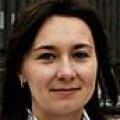
Women crossing the borders
What are the lives of Russian women settled in northern Norway like? Stereotypes about Russian women as prostitutes or old-fashioned housewives abound in local communities in the north of Norway, explains researcher Jana Sverdljuk.
2004
The modern Islamic Woman
Many women in Turkey want to use Islam to free themselves from traditional life-patterns. They think that Islam supports women getting an education, working and being politically active, at the same time as it emphasises women’s central role in the Muslim family.
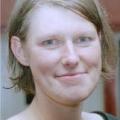
Reducing the risk of rape
It is usually the ex-politician Kåre Willoch who speaks about public safety. And then he concentrates on society's vulnerability for accidents, catastrophes and terror - and how to avoid such misery. Kristin S. Scharffscher has a master degree in resilience management from the University College of Stavanger. She uses the theories from this programme to find out how to reduce the risk for rape and sexual abuse in refugee camps.
48 000 articles by women digitised in Peru
The documentation centre for women, CENDOC-MUJER in Lima has made 26 volumes of women-related articles available in a database that is now being distributed to a network of women’s organisations throughout Peru.

Your own life
Young Muslim girls are often described as victims of a culture hostile towards women that deprives them of the possibility to control their own days and their own lives. Cand.polit. Nina Rundgren wanted to see how young Muslim girls in Stockholm experienced their personal situation, and give them a voice. The girls' statements assert that there is room for personal choice both within and beyond the framework set up by their culture.
Like Kissing a Cobra
It is impossible to fight HIV and AIDS without using the knowledge to be found among the locals. Especially women's knowledge and their networks must be used. Because a person's health is not only the result of individual choices, it is equally a result of environment, culture and society. Local culture and local institutions must be regarded as resources in the work against HIV and AIDS, not obstacles. This is the opinion of Vendelin Simon. The last two years he has been studying in Bergen at the 'Gender and Development' programme at the Centre for Women and Gender Research.
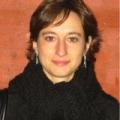
Prize for research on agrarian rights
The Centre for Women's Studies and Gender Research at the University of Oslo annually awards a prize for outstanding women's studies and gender research. In 2002 Ingunn Ikdahl won the prize for her master's thesis on women farmer's rights to land in Tanzania. Ikdahl's work has already impressed professionals, both nationally and internationally.
Africa gender-studied from Bergen
Women are prevented from using contraceptives by their husbands in Zanzibar. In Uganda the baby boys of the AIDS-dead end up on the street.
Women's Lives in Norway and Turkey
Women in both Norway and Turkey handle a gender-divided labor market and have the mein responsibility at home. But while Norwegian women can expect support from their partners and the state, Turkish women depend on help from their relatives and mainly their mothers.
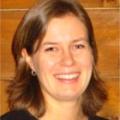
Being a virgin - no longer an honour
Heidi Holt Zachariassen is a sociologist and researcher at the Centre for Cross-Cultural Communication (SIK) in Stavanger. This autumn she travelled around in the Adamaoua district in Cameroon, and interviewed girls about HIV and AIDS. - The age for the sexual debut is young there, she says. Girls down to 10-12 years of age are sexually active.
Unique in the Nordic Countries
The Centre for Women and Gender Research at the University of Bergen is unique, in at least one way. As the only ones in the Nordic countries, they offer the possibility to take a master degree in Gender and Development. Two years ago they admitted the first group of students from all over the world. This fall they submitted their theses. The themes are widespread; from family planning in Zanzibar, to old age in Malagasy and local female fish-dealers in Lake Victoria in Uganda. The first woman working on a PhD in this subject is Gaudencia Mutema. She is studying refugees from Rwanda - and has done interviews and field work in both a refugee camp in Zimbabwe and among refugees in Bergen.